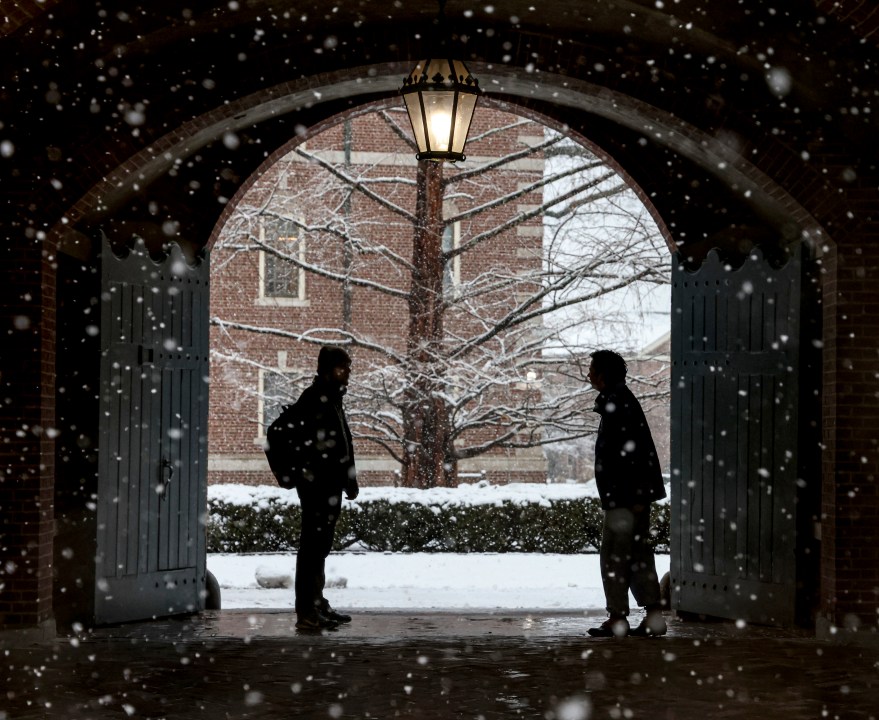Colleges brace for freshmen who never knew high school before COVID
- Studies: Teens struggling with anxiety and depression
- Skills stunted by COVID may be apparent on campuses this fall
- Colleges will need to prepare with extra support, leaders say
Testing on staging11
(NewsNation) — Jasmine Bell began high school in the fall of 2020, following COVID-19 restrictions like remote learning and social distancing for almost two years. Now, as she graduates and prepares for college, she’s still making up for the social skills she lost during the pandemic.
“That time was very strange, and to this day, it hindered my social skills, so my social skills really aren’t the best because I wasn’t really able to make friends during my growth period,” she told NewsNation. “Being locked in a room 24/7 and not being able to be outside — that did affect my mental health.”
She sees many of her classmates struggling as well.
Bell, 17, began taking classes at a community college near her home in Orange, Texas, about one hundred miles east of Houston.
“When I compare my dual-credit classmates to my regular high school classmates, there is a big difference,” she said. “They are very far behind maturity-wise and figuring out common-sense logical things.”
She credits that program, in part, for getting her ready to leave home for the first time when she starts college in Atlanta this fall.
For high school seniors like Bell, much of the experience has been marred by pandemic restrictions, which led to stunted skills essential for college preparation and beyond, say college leaders and mental health experts.
Campuses will need to brace themselves for a reckoning come fall as COVID-19’s youngest high school batch begins, Nido Qubein, president of High Point University, told NewsNation.
Qubein said it is “irresponsible” for colleges to assume that these students who were in high school in their early teens, “studying remotely in front of a computer all day divorced from human contact beyond their own parents and family,” will not be influenced in some way.
Losing social and developmental skills to the pandemic
Teens who lived under COVID during high school have struggled with increased anxiety, depression and other mental health concerns, multiple studies have found.
Students’ brains had changed over that time, specifically in the parts that regulate responses to stress and fear, self-control and memory, researchers found.

Roni Cohen-Sandler, a clinical psychologist who works with teens, told NewsNation that high school is an important developmental phase during which teens learn how to manage themselves and deal with hardships.
COVID limited that development, she said.
These teens didn’t have the “experience of navigating peer relationships, a full academic workload, developing certain academic skills, particularly executive functions, which they need to really be on their own.”
Cohen-Sandler adds teens who stayed home and avoided things that made them anxious may not have developed coping strategies.
“Their anxieties kind of grew and took root because they didn’t have to face them,” she said.
Students trying to ‘get to know people again’
Sophia Cina, a High Point University sophomore, had to relearn how to interact with her peers during college after spending two years of high school dealing with COVID restrictions.
“I had to, almost like a little kid, remember how to create conversation again and just remember how to get to know people again,” she said. “Even though the masks were meant to mask from disease, instead, it seemed like it was masking people’s personalities.”
While it was challenging, Cina can draw from her experiences during her first two years of high school. Students in the incoming class were high school freshmen during the first year of the pandemic.
Cohen-Sandler anticipates that some students may get overwhelmed very quickly beyond the normal nerves when they arrive on campuses this fall. This batch of freshmen haven’t had much experience away from their families due to quarantines and remote learning, she said.
Many students also did not have full academic demands with remote learning, which may make it difficult for some teens to meet more rigorous course loads in college, Cohen-Sandler said.
“When they went back to school, many students were so far behind, and they didn’t even know how to study anymore. They didn’t know how to manage their time,” she said.

Limited interpersonal connections due to the pandemic may also make it difficult to work out challenges and communicate with roommates or to talk to professors face-to-face about issues, Cohen-Sandler added.
“These are students who, for many years, communicated strictly by technology, so a face-to-face meeting with a professor can be very intimidating,” she said.
How are colleges responding?
Several colleges have already invested millions in campus programs to combat COVID fallout.
The University of Texas budgeted $16.5 million over the next five years to enhance student mental health and well-being, adding to the $28 million it already budgeted, reported Inside Higher Ed.
Ohio’s Department of Higher Education awarded more than $1.5 million to the University of Cincinnati to support student mental health after 2020.
Despite pouring in money, schools are still inundated with mental health needs while staff shortages have increased, and meeting the demands of students could prove difficult.
Qubein said college can no longer be just an educational institution. School leaders must be experts in human behavior.
His institution, High Point University, has given each student a success coach to serve as a contact point for new students as they navigate college life. It also increased training for staff to spot struggling students and put in restaurants in place of traditional cafeterias so students can get more “real world” experience of interacting in public spaces, he said.
“The COVID years have created some significant impediments for people … who are not able to overcome challenges very quickly, and as a result, we as an institution believe it is our responsibility to step up and step out and to add resources, both human and fiscal,” he said.
